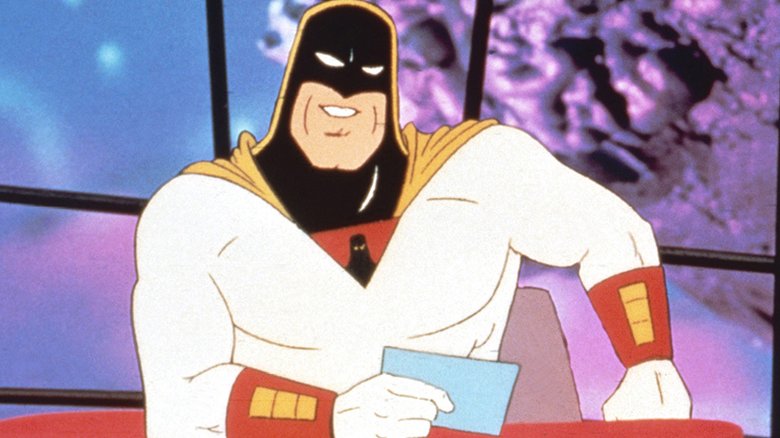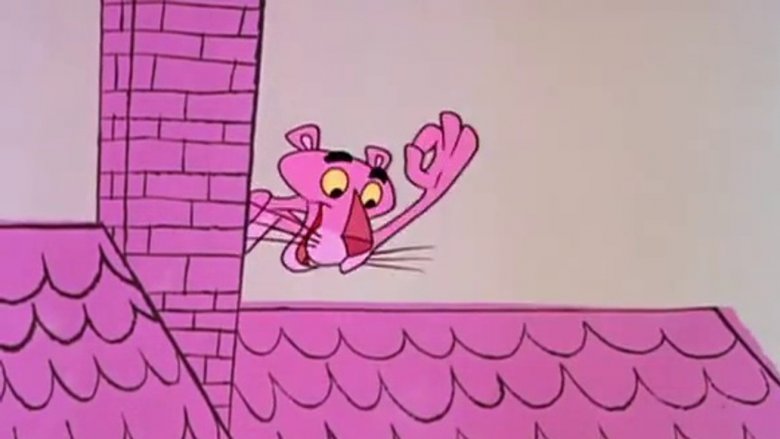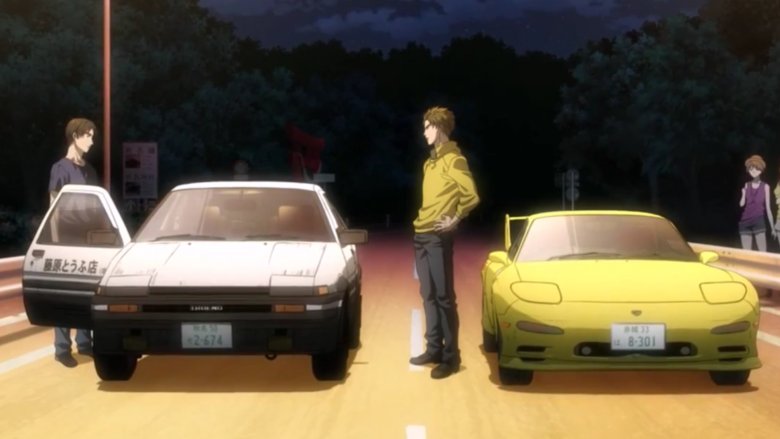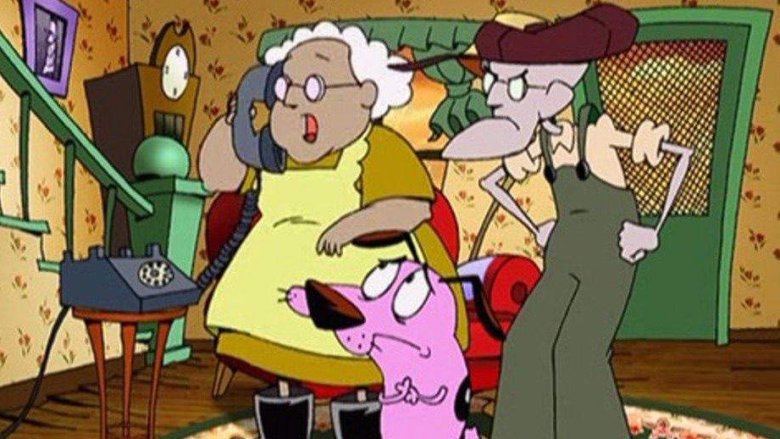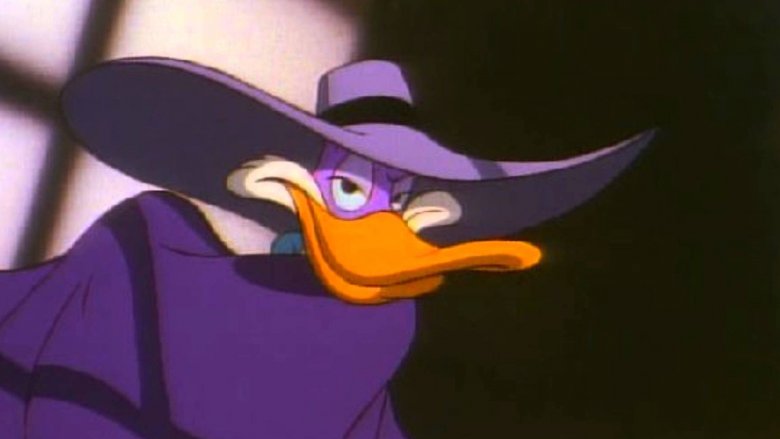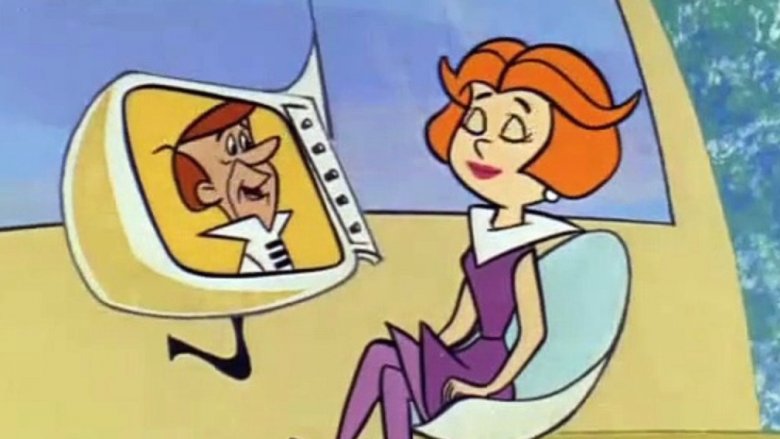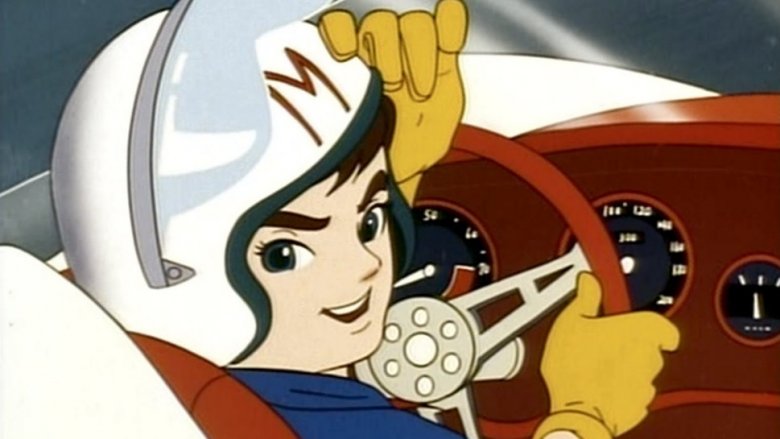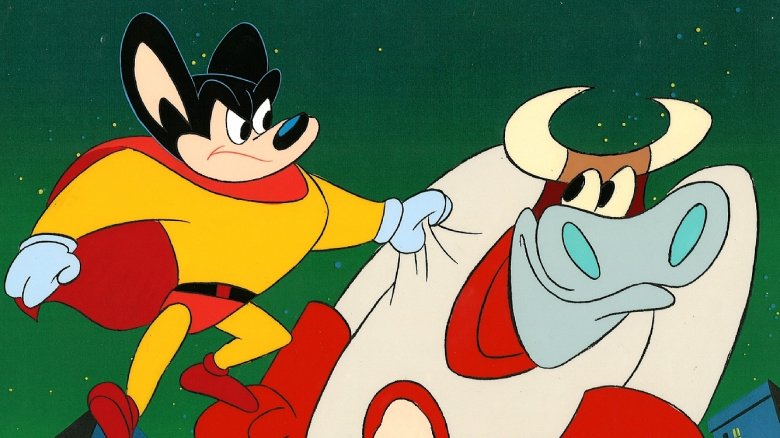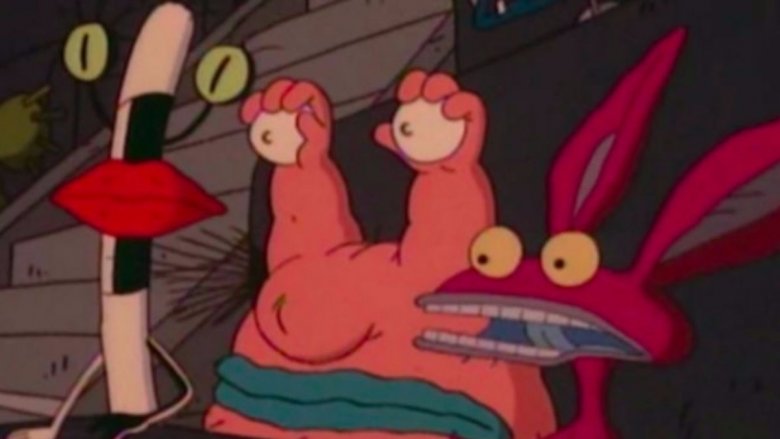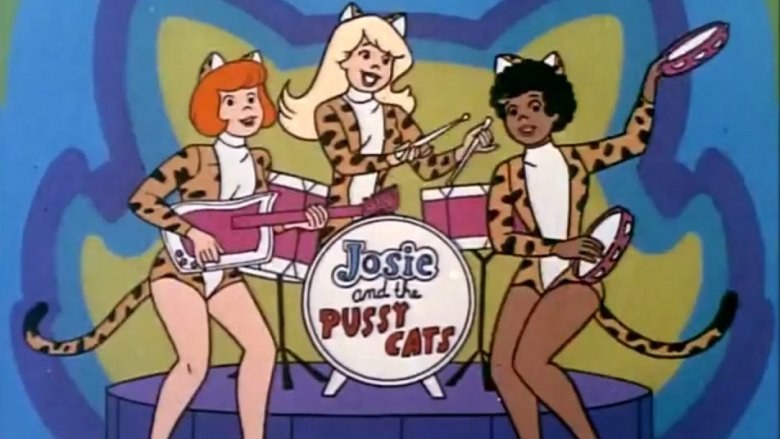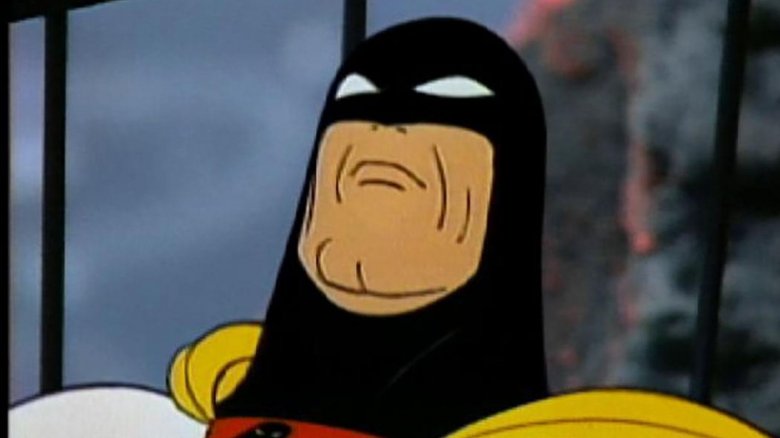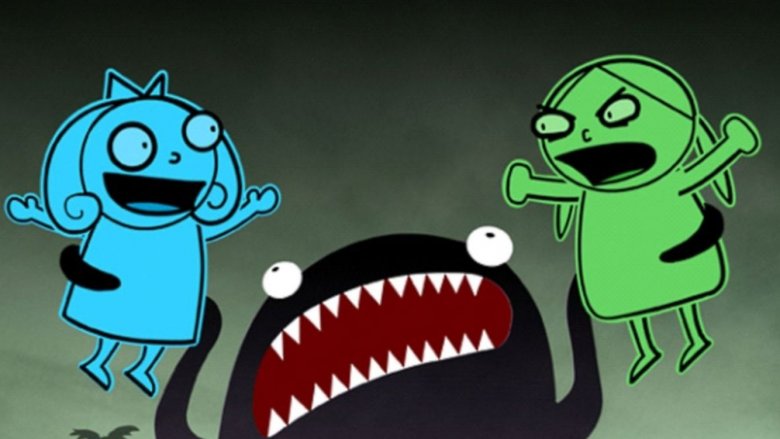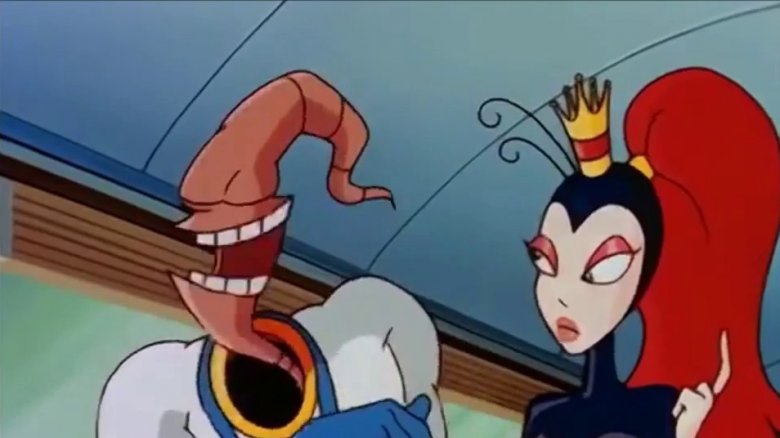Iconic Cartoons That Deserve A Reboot
HGTV might just have grounds to sue, because it seems everyone these days is becoming a Rehab Addict. The trope is nearly as old as the industry: "Hollywood is out of ideas." Based on a long history of mining stories from other media, the idea is that studios, thoroughly drowning in their own capitalist thirst-trap, are more eager to reimagine old stories than take a chance on anything new. In the age of streaming, this couldn't be more relevant: if it's for sale, some studio is inevitably going to slap a fresh coat of CGI on it and cast Awkwafina in a supporting role.
If you thought your favorite childhood cartoon was somehow safe, think again! Reboots such as The Magic School Bus, Masters of the Universe, The Power Puff Girls, and even Daria have all recently been released or are currently in development. But there's hope. While the reboot machine sometimes goes full horror show and churns out Lunatics Unleashed and Be Cool, Scooby-Doo, we can also thank it for real gems like the 2017 DuckTales and 2018 She-Ra and the Princesses of Power — shows that have genuine cross-generational appeal and might dare be called art. With that in mind, here's a fond look back at some iconic cartoons that deserve a reboot.
The Pink Panther
The Pink Panther film series is a true crime-comedy classic. Penned by Blake Edwards and starring the late, great Peter Sellers as Inspector Jaque Clouseau, the franchise spawned some truly great films and a cast of fondly remembered characters. The most famous character, however, had only minimal screen time, and very little to do with the story at all: the Pink Panther itself. Within the series, the titular panther is really a gigantic pink diamond. But for the credits sequence, directed by animator Friz Freleng, the diamond becomes an actual pink panther, using cartoon trickery to evade an animated Clouseau in a metaphoric distillation of each film's plot. The character's popularity led to a completely independent TV series, which became a 24-carat classic of its own.
The Pink Panther show is like a study in advanced slapstick, but what makes it a standout among contemporaries is the pure style. Based around Henry Manchini's theme for the films, the show is steeped in a jazzy cool that still has swagger decades later. Freleng's mid-mod art, minimal and elegant, marries perfectly to the soundtrack. Despite being incredibly spartan, the show set a high bar for what a cartoon could be. In an era when the medium is finally starting to challenge that standard, it's high time Pink made a real comeback and showed he still knows how to swing.
Initial D
By the time Paul Walker, Vin Diesel, Michelle Rodriguez, and family brought the Los Angeles street racing scene to the big screen in 2001, Japan's had been on display for most of the previous decade, thanks to the widely successful multimedia series Initial D. Based in the mountainous regions surrounding Tokyo, the show follows an aloof high school student named Takumi Fujiwara. After a chance encounter with a traveling racer exposes his secret gift for downhill drifting (developed over years of underage tofu delivery for his ex-racer father's business), Takumi falls head first into street racing, upending his life for the better.
There are plenty of anime series that could inspire excellent reboots. Like western counterparts, Japanese animation has finally wrested control over digital techniques, producing unique styles that have served shows like Pokémon and would undoubtedly serve other classics too. What sets Initial D apart is that it isn't like many other anime shows, let alone other western cartoons. Aside from being exceptionally produced, it's the rare animated series based in reality, featuring nothing explicitly fantastical or even exaggerated. In fact, it maintained popularity largely because of how accurately it deals with everything, from the cars to the settings (which are practically 1:1 recreations of real locations). Gearheads would undoubtedly get a kick out of the show's great storytelling and attention to detail applied to contemporary automotive technology. For fans of animation, the show would fill a much-missed void.
Courage the Cowardly Dog
Cartoons have always been the wildest form of video media thanks to their innate ability to create a direct link to the creator's psyche, however outrageous or perverse. For a while, though, mainstream cartoons really went off the deep end — like Courage the Cowardly Dog, which originated in 1996 and aired through the early 2000s. While owing a great deal to cartoons like The Ren & Stimpy Show and Aaahh!!! Real Monsters, Courage found its own niche by sticking a traditional slapstick cartoon in a world of bleak, grotesque horror, equal parts hilarious and chilling. Kids were quick to glom onto the show's eccentricities; the show also attracted a sizable adult viewership, and remains popular long after its final episode aired.
Even among other cartoons that reveled in the strange and horrible, Courage the Cowardly Dog was special. It successfully juggled comedy and horror while featuring groundbreaking (and often genuinely experimental) art, which mixed a wide array of styles belonging to both traditional and emerging forms of animation. Years later, some of these techniques show their age, but in a way, they were always meant to. Animation has advanced in leaps and bounds since Courage originally aired, and it would be fascinating to see what creator John R. Dilworth might do with a much more mature set of digital tools, which have paradoxically also made traditional animation easier. But what really makes Courage the Cowardly Dog ripe for a reboot is that it was just a great show that left much too early and would remain fresh and frightening for years to come.
Darkwing Duck
Of all the cartoon reboots that have come and gone over the decades, DuckTales is by far one of the best. With a classy animation update and better writing that addresses and corrects some of the missteps of the original, the show has gone from nostalgia candy to genuinely good. Almost as soon as the 2017 premiere date was announced, rumors and speculations began emerging about a reboot of a DuckTales companion show that has arguably retained a stronger following since leaving the air: Darkwing Duck. Conceived as a parody of Batman, among others, Darkwing Duck largely followed the DuckTales template of pairing high-quality animation with a story that deftly combined thrilling action-adventure with traditional cartoon humor.
Darkwing the character is now officially part of the new DuckTales universe, having been introduced in season 2 in what is surely one of most fourth-wall bending TV episodes of all time. However, Disney has no public plans of giving their best home-grown hero his own show. The Darkwing update works just as well as fans had predicted, and the character has been setup to play an important role in the DuckTales universe, but while this will surely lead to some great moments and episodes, fans are understandably frustrated. At some point the proverbial duck pond is going to start feeling a little crowded, and all we can do is hope that Disney does right by Darkwing.
The Jetsons
The Jetsons are getting a reboot! That's right, you can put your phone down, close your laptop, and carry on with your day. The people have spoken, and the media gods have made it so!... Oh, it's going to be live action? A live action, multi-cam... sitcom? False alarm, looks like we aren't done here after all.
Since 2017, Disney-owned ABC has been in production on a sitcom remake of the Hanna-Barbera classic. Robert Zemeckis, writer/director of the Back to the Future series, has been attached as executive producer, and will also helm the show's pilot. Zemeckis withstanding, there are a number of reasons to be excited for this new and unique take on America's favorite space-age family. But the glaring fact that George, Jane and the kids are going to become all gross and fleshy is also reason enough for fans to be disappointed.
Now more than ever, a show like The Jetsons might actually work in live action, thanks to the budgets studios are doling out and the ever-increasing realism of the kind of special effects the show will undoubtedly be relying on. But there's more to animation than illustrating the impossible — there's a charm and artistry to it that live action, for all its own charm and artistry, can't match. Beyond that, there's a possibility that ironically, a multi-cam format might make the show look too flat, something that the original show was pretty good at avoiding, despite a fairly minimalist style. Unfortunately, while some fans will be satisfied with any Jetsons, so long as it's good, fans looking for a true reboot probably shouldn't hold their breath.
Speed Racer
Speed Racer might be the most well-known anime show of all time. Produced in the 1960s, the show is almost singularly responsible for Japanese cartoons gaining any foothold in the west, and considering how well the show has held up, it's not hard to see why. Like contemporary anime, Speed Racer is full of melodrama, stark tonal shifts, and dialogue that feels almost stream-of-consciousness. However, owing to the car-centered premise and creator Tatsuo Yoshida's affinity for American culture strongly influencing the story, Speed Racer has always felt more familiar and accessible to western audiences than its successors and contemporaries.
Like countless other cartoon classics, Speed Racer has already been rebooted — not once, but three times. But while the characters and premise have remained largely the same over each iteration of the show, American studios ran the property into the ground. Unfortunate, because there's really no reason why a contemporary Speed Racer wouldn't work. In fact, with the success of animated properties like Spider-Man: Into the Spider-Verse, projects that prove Americans are capable of integrating anime techniques, the time has never been better for another attempt. Of course, Japan could also give it another go — whatever it takes to bring back this delightful series.
Mighty Mouse
Mighty Mouse is one of the oldest cartoons, going back all the way to the 1940s when it was commissioned by 20th Century Fox as a series of pre-movie shorts. The show didn't become popular until a decade later, when CBS bought parent studio Terrytoons and put it into Saturday morning syndication, where it enjoyed a remarkable 12-year run. Not content to stay down, Mighty Mouse enjoyed two reboots in the early and late 1980s, but unlike the cynical cash grabs that have plagued animated television for most of its life, neither reboot was bad, and in fact the latter is credited with inspiring a whole new generation of exceptionally produced cartoons. Of course, that's bound to happen when an animation legend like Ralph Bakshi is running the show.
Bakshi, most famous for creating the first X-rated cartoon, Fritz the Cat (a legacy that continues to overshadow his better, later work), took what was already an incredibly smart and funny show and essentially gave audiences more to chew on. Additionally, Bakshi updated the animation, developing a style that will instantly look familiar to fans of later shows like The Animaniacs. With such a long and strong legacy, it would almost be a shame to risk yet another revival and have the whole thing come crashing down. But with such talented animators and writers currently working, it would be more of a shame not to try.
Aaahh!!! Real Monsters
The '90s were a great time for children's cartoons. Shows written expressly to sell toys had taken a bit of a back seat, and creators were given an unprecedented degree of freedom over what they were allowed to produce. The result was a diverse array of shows with legitimately different characters and stories. Shows drawn straight from real life, like Doug and Hey Arnold! Shows with action and adventure like Rocket Power and The Wild Thornberrys. Shows where actors like Jaleel White (Urkel) played video game character like Sonic the Hedgehog (beautifully devoid of uncanny valley CGI). And then there were delightfully strange shows, like Aaahh!!! Real Monsters. Similarly to Courage the Cowardly Dog, Aaahh!!! Real Monsters was a bit of a comedy-horror hybrid. Unlike the later cartoon, though, Aaahh!!! Real Monsters rarely ever got all that creepy, instead using its grotesque skin as a series-long role-reversal gag, not unlike Monsters Inc.
Aaahh!!! Real Monsters continues to have a pretty strong cult following. The show's enduring popularity basically comes down to great characters and an interesting animation style that aficionados will recognize as belonging to Klasky Csupo, the studio behind Rugrats and many other Nickelodeon favorites. In the early 2000s, Nickelodeon started severing ties with Klasky Csupo, primarily due to waning interest in their animation style, and the studio has been mostly stagnant since. However, with the original team back together for a Rugrats reboot, it's high time some of their other great creations were given another lease on life.
Josie and the Pussycats
Decades from now, it may be hard to explain to kids why groups of people used to haul around heavy and expensive equipment, then squeeze together in cold garages or sticky dive bars all to make music. The once irresistible cool of being in a band may have started to wane in recent years, but in the 1970s, the only thing cooler than a group of hip kids playing guitars together was a group of hi kids solving mysteries together — and Josie and the Pussycats did both!
Part of a sizable collection of animated series produced by Hanna-Barbara, Josie and the Pussycats isn't necessarily the best of the bunch. Like Jabberjaw, Speed Buggy and Scooby-Doo, the show is lazy, predictable and a little dated, none of which make a strong argument for a comeback.
However, it's actually all of the above that makes Josie such a strong candidate for a reboot. Underneath all of that lackluster writing is a solid (albeit ridiculous) premise dying to be turned into something truly great. And lest producers worry about the current viability of a show centered around a rock band, studies from music industry players like the Fender Musical Instruments corporation and music magazine She Shreds indicate that girls and women are actually flocking to guitar-centered music at a record rate. The Pussycats were always meant to become stars, and now may be the best time for them to reclaim that spotlight.
Space Ghost
Hanna-Barbara made nearly 250 animated series, from The Flintstones to Scooby-Doo and the various incarnations of Jonny Quest. The studio even produced properties for Marvel and DC, such as 1967's The Fantastic Four and 1973's Super Friends. It stands to reason that with such a broad catalogue of shows, a few would fall through the cracks. Space Ghost very easily could've been one of them if it hadn't been for a rather ingenious reimagining created by Cartoon Network in 1994: Space Ghost Coast to Coast. While the latter is a true masterpiece of absurdist comedy, its popularity has obscured the fact that the original, though different, was pretty great too.
If pitched to contemporary TV executives, Space Ghost is something of a cross between Batman and Star Trek, with a little Doctor Who and Guardians of the Galaxy thrown in. Sold? Who wouldn't be! Space Ghost was essentially the best version of a sci-fi radio play, with fantastic suspense and drama, but the added benefit of great visuals to match. A true reboot of the original probably wouldn't fly given the popularity of Space Ghost Coast to Coast, but a marriage of the two, balancing suspense with surrealism, action with satire, could potentially be the greatest animated sci-fi show ever created. Plus, retro-futurism is definitely in right now.
Making Fiends
It is a complete and utter travesty just how few people are aware of writer-animator Amy Winfrey or her amazing web series-turned-TV series Making Fiends. Winfrey, who has also been one of the primary directors for the Netflix show BoJack Horseman, created her web series way back in 2003 (a whole three years before YouTube started), producing 21 episodes before she was contacted by Nickelodeon about adapting the shorts into a 30-minute television series. Unfortunately, it was canceled after only a month on the air.
Despite a depressingly short single season, the show was lauded by critics for its book-like animation style and brilliantly simple humor. Only Nickelodeon knows why it was killed before it had a chance to find its audience, and really, it doesn't matter. The six episodes that made it to air were ahead of their time, narrowly missing the cartoon renaissance brought on by Adventure Time that would've definitely given Making Fiends the atmosphere to flourish. Thankfully, this golden period for cartoons shows no sign of stopping, and with Winfrey having a heavy-hitting show like Bojack under her belt, maybe this time her work will get the respect it deserves. But while fans of Making Fiends anxiously await a renewal, they might find some relief in Winfrey's latest web series, Hooray for Hell, which premiered on its own website in October of 2018.
Earthworm Jim
From just reading its name, bells are ringing in the ears of fans of this brilliantly absurd television show. Bells, and trumpets, and the voice of an anthropomorphic yellow puppy named Peter. "Earth-Worm-Jim," the operatic chorus chants along to the "William Tell Overture"-inspired theme, all while images of a bionic worm doing battle with evil space creatures come flooding back in waves of vivid nostalgia. Based on the video game of the same name, Earthworm Jim the show came about as a clever way for the game's development company, a then-new independent studio called Shiny Entertainment, to market their first original creation.
Somehow the show avoided the usual soulless treatment given to bigger, more popular game adaptations, thanks in large part to the character's creator, Doug TenNapel. The show ran for two all-too-short seasons before disappearing into obscurity, and the game met a similar fate after the third and fourth sequel were outsourced to another studio. But in May of 2019, it was announced that a new game will be released in 2020 on a new console created by Intellivision, a company that hasn't produced a gaming platform since the early '80s. With news that wonderful and strange, how could they not be considering a reboot of the TV show as well?
